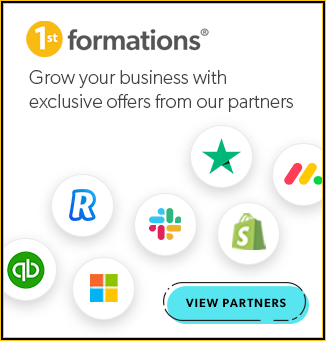Despite progress towards workplace equality, women’s representation in leadership roles is declining in the UK. According to LinkedIn data published in the World Economic Forum’s Global Gender Gap Report 2024, in 2023, only 37.1% of leadership hires were women – a 0.7% drop from 2022. Even more strikingly, while women hold nearly half (46.9%) of entry-level roles, their representation plummets to just 25.9% at the C-suite level.
So, what’s stopping women from advancing? The numbers reveal a persistent “seniority slump”, but the reasons behind it go beyond this data. In an interview with Orianna Rosa Royle from Fortune, Sue Duke, VP of Global Public Policy at LinkedIn, says a critical factor is missing: mentoring for women.
What we’re seeing is that the absence of that mentorship, the absence of that allyship, that an absence of investment in women and their confidence level, their skillset to make sure that they can go and apply and get that manager role.
This is disappointing but unsurprising. Women are not only underrepresented but also under-sponsored and undermentored. Mentorship is one of the most powerful tools for career acceleration—it provides guidance and advocacy throughout a woman’s professional journey. As Oprah Winfrey once said, “Surround yourself only with people who are going to take you higher.”
Let’s examine why mentorship matters for women in business, the differences between mentorship and sponsorship, and the power of networking in a woman’s career growth. We’ll also spotlight some mentorship schemes in the UK that help women take meaningful steps towards their professional goals.
Key Takeaways
- Mentorship is a powerful tool for women in business. It provides guidance, increases confidence, and opens doors to new opportunities.
- Successful mentoring requires clear planning, a time commitment, and the right mentor to challenge and support you.
- Women face barriers such as limited access to mentors, lack of sponsorship, and workplace biases, making structured mentorship even more essential for their career progression.
What does mentoring involve?
Mentoring is a co-created, mutually beneficial partnership and collaborative process. Yes, a mentor guides the mentee. However, the mentee must actively participate and help shape the relationship.
For mentees, having a mentor can help them define their career aspirations and set actionable goals to achieve them while building their self-confidence. For mentors, having a mentee can reinforce their role as supportive and influential leaders and open doors to learning from different perspectives.
- Women founded a record number of businesses in 2023. Here’s why.
- ‘Women who start their own businesses are happier’: Michelle Ovens CBE, Small Business Britain
- Humble beginnings: The story behind Not on The High Street
In an interview with Amy Beecham for Stylist, Sharmadean Reid, founder of WAH Nails, Beautystack, and The Stack World, says mentorship is “a way for women in particular to share their knowledge and skills and basically break down this lack of information that keeps certain power structures in place.”
What are the benefits for mentees?
- Career progression: Gaining valuable insights into leadership and navigating workplace challenges.
- Confidence and skill-building: Strengthening both technical and soft skills.
- Networking opportunities: Access to the mentor’s professional network opens new opportunities.
- Personal development: Increased self-awareness, support, and encouragement when facing obstacles.
For women in business, specifically, Reid highlights that being without a mentor can be a lonely experience.
I find that women who don’t have a supportive community tend to drop out or tap out when they come up against a challenge that they think they can’t rise to, but when you have a mentor it gives you that support, understanding and empathy that can help you recover from knockbacks.

Finding a mentor could be a great option if you want to develop a small business idea but don’t know where to start. Even if you’re further down the line and are considering registering a company, a mentor can support you by empowering you to make difficult decisions and offering guidance to keep you heading in the right direction.
What are the benefits for mentors?
- Leadership and influence: Strengthening their active listening skills and improving their coaching techniques.
- Learning: Gaining fresh perspectives, ideas, and insights from the mentee.
- Self-reflection: The mentor can carve out time to reflect on their own accomplishments and expertise.
- Sense of reward: Mentors are often altruistic and enjoy giving back to the community and supporting another woman’s career journey.
What is the difference between mentorship and sponsorship?
Mentorship is easy to confuse with sponsorship. Mentorship is about guidance and support, whereas sponsorship is about active responsibility in someone’s career progression.
Mentors are committed to their mentees and can offer insights based on their experience. Still, they do not have the power or influence to advocate for someone as sponsors do.
However, there’s a spectrum of rapport types. According to Herminia Ibarra, career supporters fall into different categories, including:
- mentors, who provide guidance, support, and coaching.
- connectors, who introduce mentees to influential people.
- advocates, who publicly push for promotions and career progression.
A mentorship relationship can evolve into sponsorship if the mentor gains exposure to their mentee’s work and has some decision-making power.
In Adam Grant’s ReThinking podcast episode, ‘Finding and Becoming Great Mentors and Sponsors’, Carla Harris recommends “[noting] the people [in your organisation] who have a seat at the decision-making table. And if you can’t figure that out, ask someone.”
What to consider before entering a mentor/mentee relationship
Before starting mentorship, be clear on what you want to gain from it. Are you seeking short-term job guidance or support to achieve long-term career goals? Understanding your strengths and areas for growth is also necessary to ensure your mentor can provide relevant guidance.
Mentorship isn’t just about receiving, either; it’s reciprocal. So, ask yourself what you can bring to the table. It could be a fresh perspective, positive energy, or a willingness to action advice.

Consider where you look for a mentor, too. A strong internal mentor is someone well-connected within your company. As such, they can help you navigate workplace politics, provide insight into business strategy, and look out for opportunities.
An external mentor, on the other hand, could be an industry leader or subject matter expert. External mentors can challenge your thinking, broaden your professional outlook, and provide insights beyond your organisation. Choosing which type of mentor is best for you will depend on your goals and challenges.
How to select a mentor
Many influential leaders recognise that mentorship is pivotal to their career growth. Maya Angelou mentored Oprah Winfrey, who helped shape her leadership and communication skills. Michelle Obama also influenced Barack Obama’s early career – she mentored him when he took a summer internship at a top Chicago law firm where she worked.
These relationships all have common ground. They were built with the following attributes that you should look for when choosing a mentor:
- Trust: You should feel comfortable being honest and vulnerable with your mentor. Without mutual trust, open discussions won’t happen.
- Challenge: A great mentor won’t just agree with everything you say – they’ll challenge you to step outside your comfort zone and ask the tough questions that help you grow.
- Expertise: Your mentor should have the knowledge and experience to guide you, but this doesn’t always mean they have to be the most senior person in the room. A strong mentor understands your challenges and can offer guidance and practical insights based on their experience.
Debunking common mentorship myths
You might assume a mentor should be someone who closely mirrors your career path. However, a valuable mentor brings a different perspective. Consider seeking a mentor who:
- has a different leadership style
- approaches challenges differently
- comes from a different industry or background
- is of a different gender or generation, providing fresh insights
You may also think a mentor should be more senior than you – in age and career stage. However, a strong mentor can guide you based on their experience, regardless of the number of years they’ve worked or their job title.
Ask yourself the following questions when choosing a mentor:
- Who has faced similar challenges and navigated them successfully?
- Who asks great questions and pushes me to grow?
- Who can offer me perspectives I wouldn’t normally consider?
What stops women from seeking a mentor?
According to the Pew Research Center, 63% of women have never had formal mentoring. Despite its value and benefits, many women face barriers to mentorship. Here are some of the biggest ones:
- Lack of confidence to reach out: Many women feel awkward or think approaching someone is inauthentic. The good news is that mentoring schemes often have a matching process, which removes this. It’s also helpful to have a specific request or a clear connection first and to understand whether your organisation already has a mentoring programme.
- Lack of time: Women often find themselves pressed for time, especially when they have other commitments outside the working day. We need to shift our mindset when investing time into personal and professional growth and deliberately create space for mentorship.
- Feeling uncomfortable: Many women struggle to express their wants or ask for support. A useful tip is to reframe asking for help as wanting to develop or looking for advice. Remember that, as a mentee, you can also bring a lot to the table, so identify what you can share. This will give you confidence when approaching a mentor.
- Fear of knockbacks: This is normal, especially when approaching someone more senior. The worst that can happen is they say no or don’t have time. However, they may put you in touch with someone else or offer guidance for finding a suitable mentor.
The power of networking
Women prefer to network with other women and create smaller, more personal networks. However, this can be limiting. While they may have friends, family, and partners for support and connections at the same career level or more junior, women can lack upward, more senior connections.
In addition, women unintentionally tend to form ‘convenience networks’, such as people with shared interests or colleagues. These networks don’t offer the spectrum of ideas and resources needed to progress our careers effectively.
In one of LHH’s Elevating Women in Leadership taster sessions, which focuses on mentoring for women in business, Orla Power and Pauline Muldoon address the importance of networking. They encourage women to ask themselves who will vouch for them, spotlight opportunities for them, and increase their visibility at higher levels.
As women, we must say what we’re looking for and ensure our network is broad, cross-functional, internal, and external. This way, we can expand our network in different directions as we grow, avoiding over-reliance on the same connections.
Network strength: women vs. men
In a LinkedIn white paper, Matthew Baird, Danielle Kavanagh-Smith, Osonde Osoba, and Yuwen Wu created a model of network strength. They examined how network strength measures are linked to economic outcomes. For instance, they looked at the connection between the volume of recruiter InMail received by a LinkedIn member and the likelihood that their job title reflects an increase in seniority across one year.
A key finding was that men’s median network strength is 8.3 percentile points higher than women’s. This stems from men having more extensive networks, greater communication, and more connections to senior people in related industries.
Another finding was that stronger networks attract more recruiter interest. For example, a 10 percentile point increase in network strength corresponds to a 0.27 percentile rise in monthly recruiter messages.
Understanding workplace politics
Politics affects every organisation, from startups to large corporations. Whatever the size of your company, politics will often impact your career progression, particularly as you advance as a senior leader. Building strong professional networks is key for women, so it’s useful to understand who has influence within an organisation.

Ask yourself, how politically aware are you? Do you avoid approaching senior leaders? Or do you actively position yourself favourably and create opportunities to build relationships with influential people? The higher the career ladder, the greater the need to be politically agile and influential. The combination of being politically savvy and having strategic networking skills can give women the allies and visibility they often need to accelerate their careers.
What does successful mentoring look like?
Successful mentoring starts with mutual commitment. Both the mentor and mentee must invest time and effort. Women in business often juggle demanding roles, so prioritising the mentorship relationship is key. Here are some top tips for successful mentoring relationships:
1. Be proactive and invest time
As a mentee, start by clarifying your skills to develop and desired outcomes. You should then take ownership. This means initiating meetings, scheduling meeting times, and following up with your mentor.
Proactivity is necessary to ensure the relationship has purpose and meaning in your career progression.
2. Plan, communicate, and set an agenda
A well-structured mentorship is co-created. This means both parties know how often to meet, where, and their preferred communication styles. They also know the best way to reschedule, if needed, and regularly have check-ins to review how things are going.
Consider having a professional setting for your mentorship meetings to ensure these are productive. At 1st Formations, we offer tech-enabled meeting rooms that provide a professional environment equipped with the tools you need, including interactive displays.
3. Ensure confidentiality and build trust
For women in business, a safe, confidential space is crucial. This allows for honest discussions about challenges, leadership and workplace dynamics. Successful mentoring is built on trust, honesty, and confidentiality.
4. Receive and give constructive feedback
Effective mentorship involves giving and receiving constructive, actionable feedback. As a mentee, discussing your preferred way of receiving feedback early on can help ensure the guidance you get is relevant and delivered appropriately. A great mentor will challenge you, but a great mentee will embrace feedback and act on it.
5. Be accountable and respectful
Mutual respect builds a strong, professional relationship. Part of this involves being responsive. Mentors should be accessible, and mentees should drive the relationship.
Furthermore, accountability is key to progress. As a mentee, think about how you can follow through with actions beyond the conversations you have.
Being a mentor: How women can pay it forward
Iyanla Vanzant, an American lawyer, coach, and inspirational speaker, once said, “The way to achieve your own success is to be willing to help somebody else get it first.”
Think back to when someone gave you guidance that changed your career trajectory. What made that mentorship valuable? If you’re considering becoming a mentor, know that mentorship is an opportunity to give back and inspire the next generation of female leaders.
When connecting with a mentee, Sharmadean Reid, in her interview with Stylist, said she looks for “someone who will blow [her] mind and re-energise [her] because that’s what you get from younger people, they energise.”
You might not have fulfilled your career aspirations yet, but that shouldn’t stop you from becoming a valuable mentor. Ask yourself what challenges you’ve faced in your career and how you could share these lessons with others. Female mentorship matters as much for mentors – you’ll strengthen your leadership skills, gain fresh perspectives from mentees, and enjoy a sense of fulfilment from guiding other women.
Female mentorship initiatives in the UK
We recommend exploring mentorship schemes in your workplace and reading about external initiatives for women in business in the UK. We’ve hand-picked two organisations to show you what mentorship programmes are available.
Women in Banking & Finance (WIBF)
Founded in 1980, WIBF is a volunteer-led organisation dedicated to gender equality in financial services. It offers events, networking opportunities, and career advice for women in banking, fintech, insurance, law, and wealth management.
Its cross-sector mentoring programme connects members with industry professionals, providing valuable insights and career guidance. Membership options include digital, all-access, and student plans.
Bloom
Established in 2010, Bloom is a professional network for women whose mission is to ensure women have equal opportunity in the communications and marketing sector.

Its Mentoring Programme supports women with 2–6 years of experience across advertising, PR, media, creative agencies, and tech platforms, pairing them with inspirational senior women in the industry.
Committed to inclusivity, Bloom has expanded its reach with support groups and advocacy initiatives to champion women at every stage of their careers.
Advance your career as a woman with mentorship
Mentorship is more than just career advice; it’s a powerful tool for women in business to accelerate their career growth, gain confidence, and build a supportive network. Now is the time to explore mentorship opportunities, whether you’re climbing the corporate ladder or setting up your business venture.
And suppose you’re a female entrepreneur looking to take your business to the next level. In that case, our experts at 1st Formations can provide advice on scaling your venture, including registering as a limited company to support long-term growth.
In the meantime, why not leave a comment with your thoughts or visit the 1st Formations blog for more tips and guidance on running a business?
Please note that the information provided in this article is for general informational purposes only and does not constitute legal, tax, or professional advice. While our aim is that the content is accurate and up to date, it should not be relied upon as a substitute for tailored advice from qualified professionals. We strongly recommend that you seek independent legal and tax advice specific to your circumstances before acting on any information contained in this article. We accept no responsibility or liability for any loss or damage that may result from your reliance on the information provided in this article. Use of the information contained in this article is entirely at your own risk.














Join The Discussion
Comments (2)
Thanks for the article! This guide to mentoring for women will be helpful for my own accounting solutions UK business.
Thanks David!
We are so pleased you enjoyed our recent blog.
Kind regards,
The 1st Formations Team